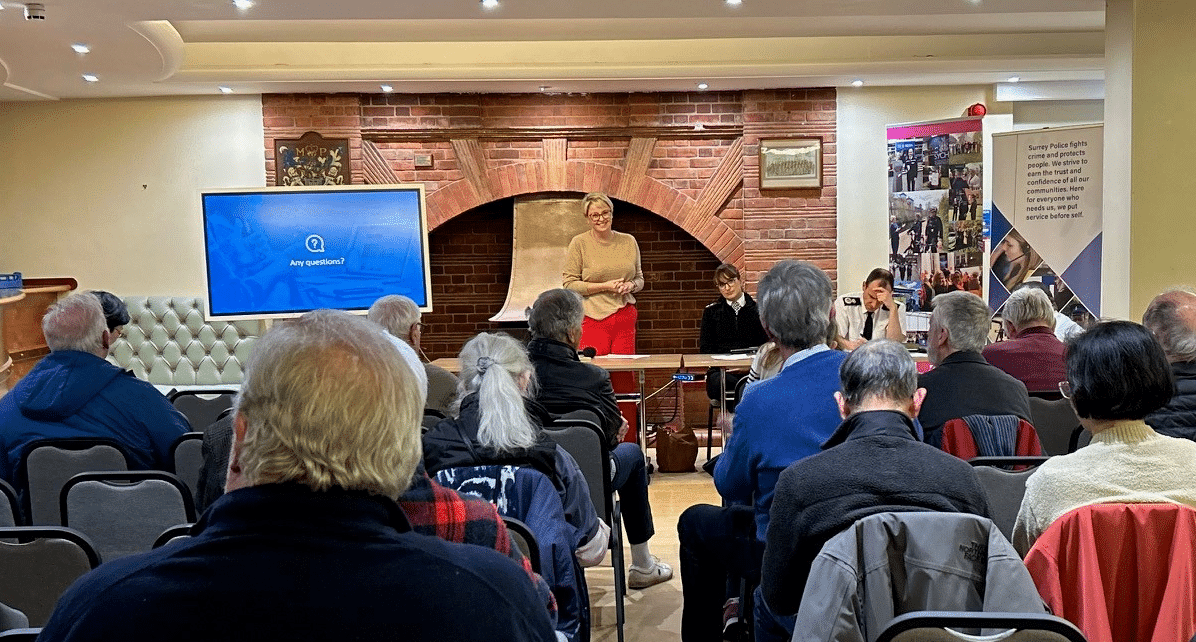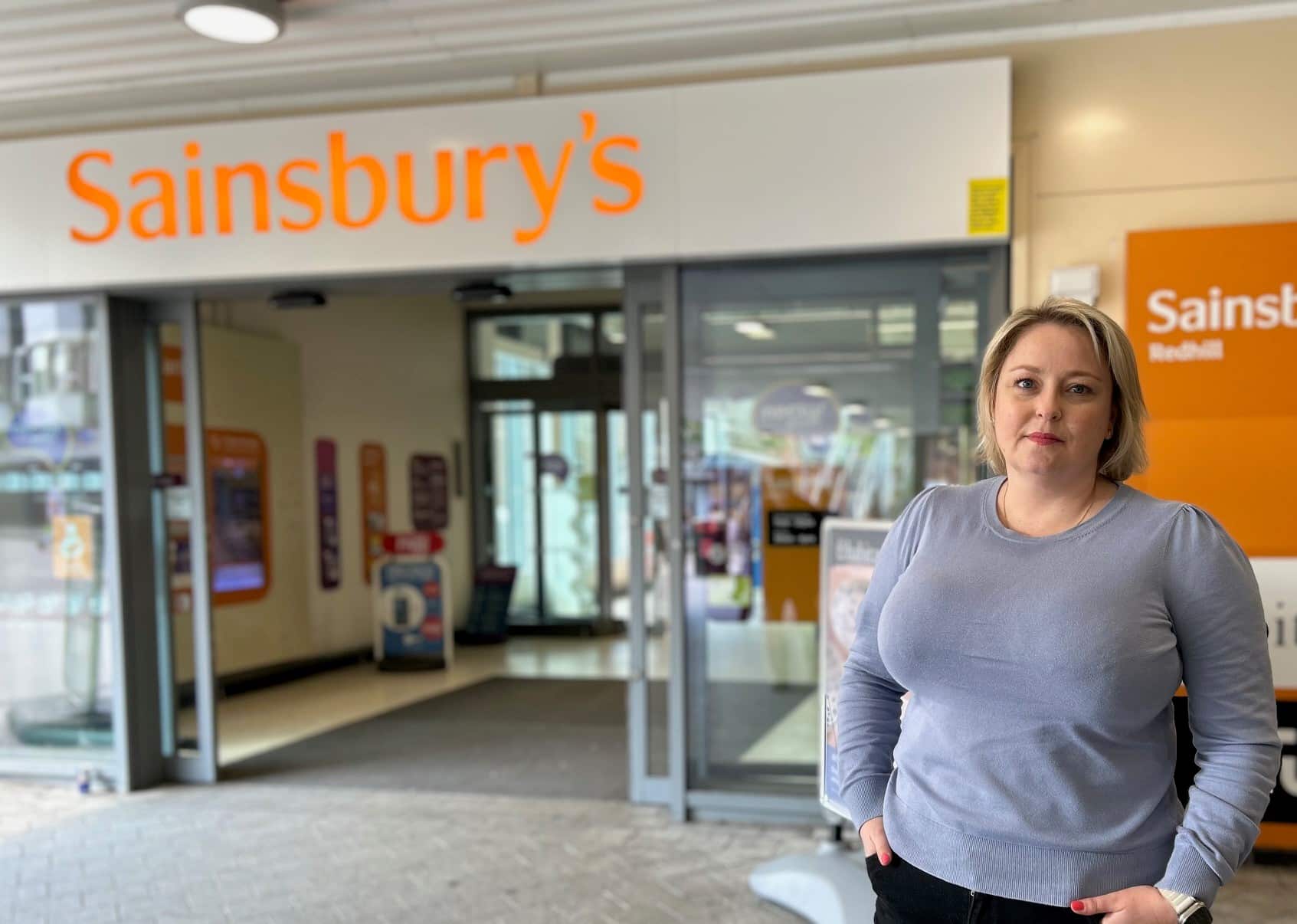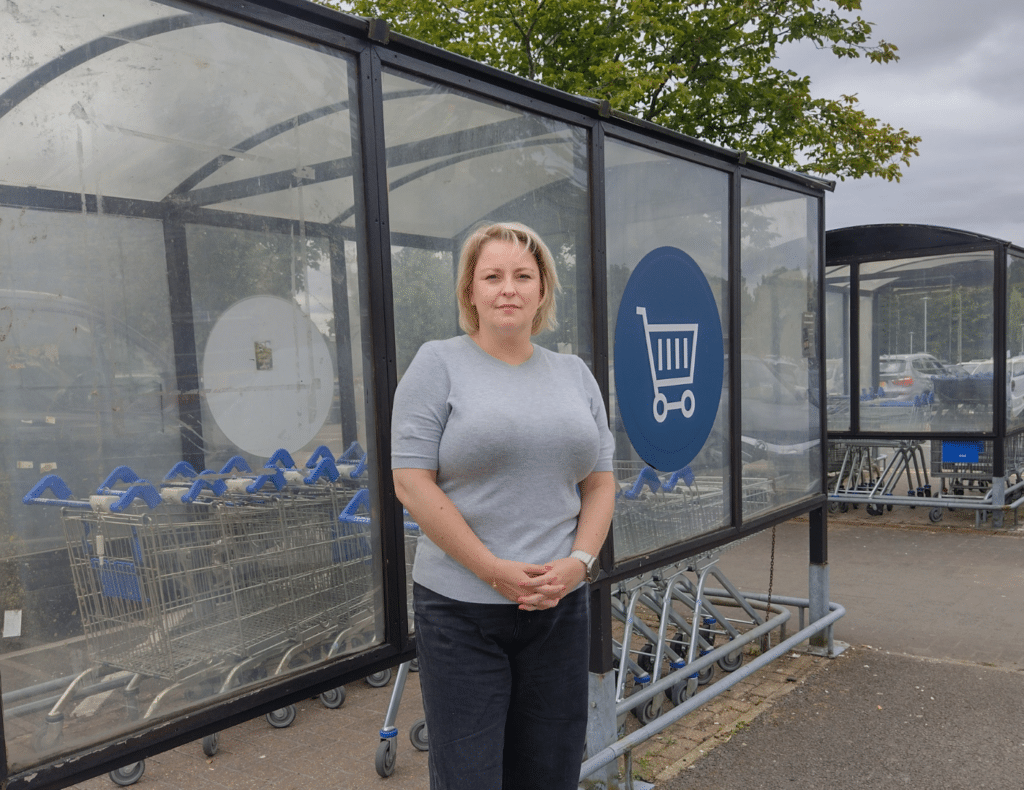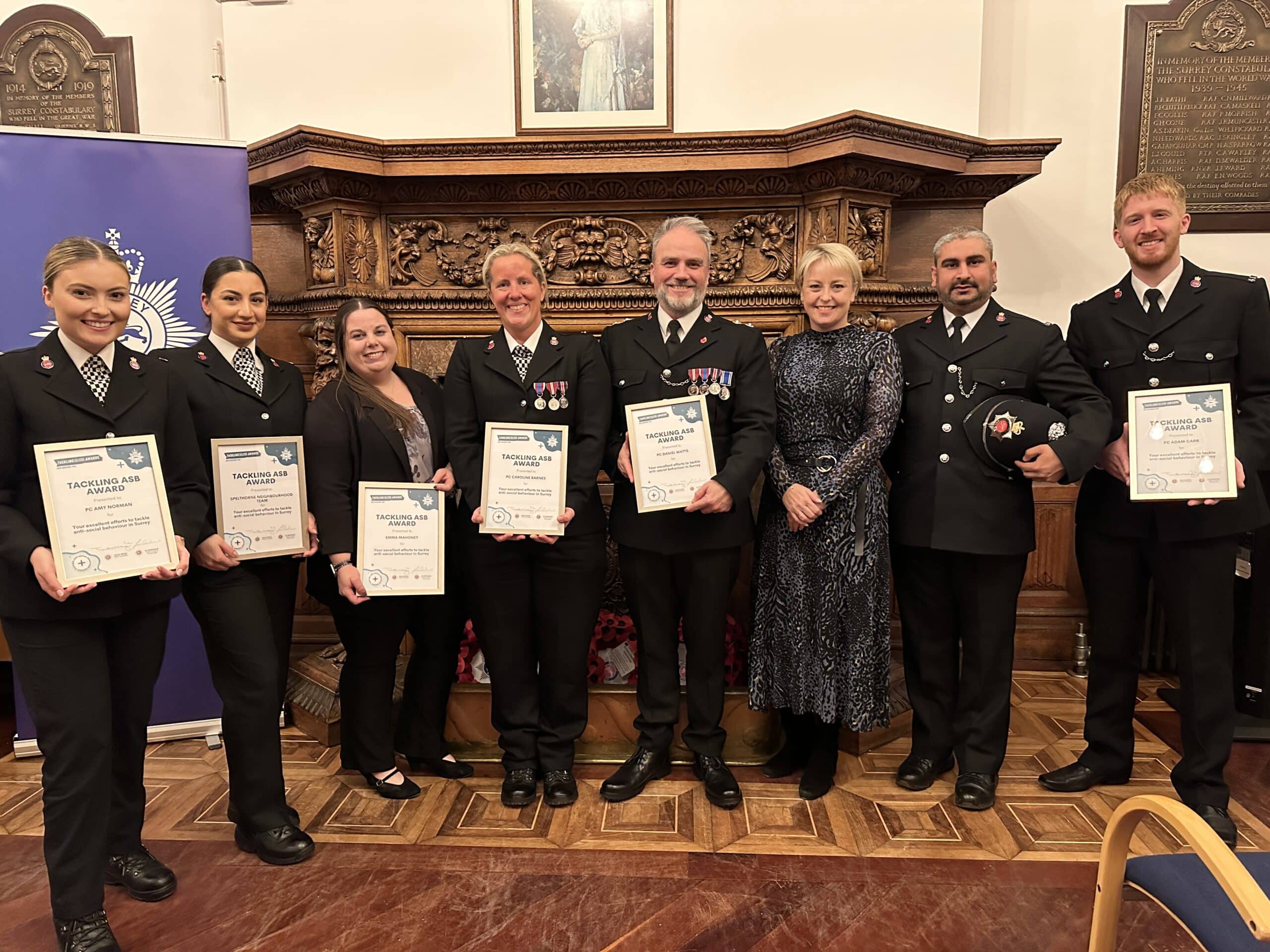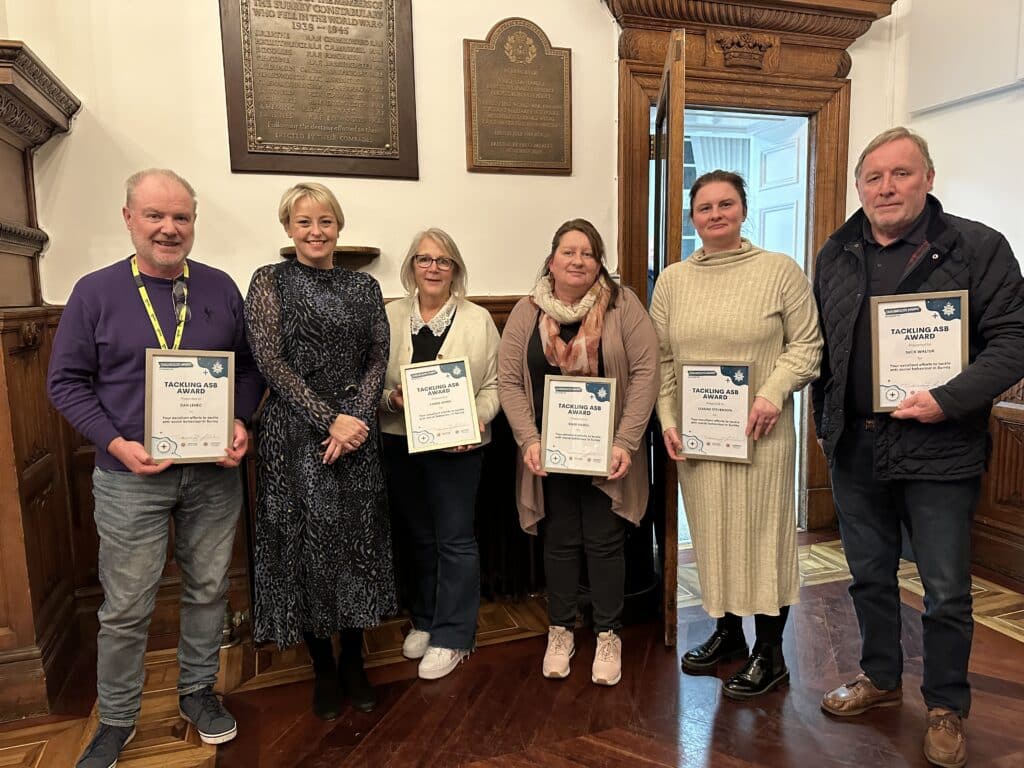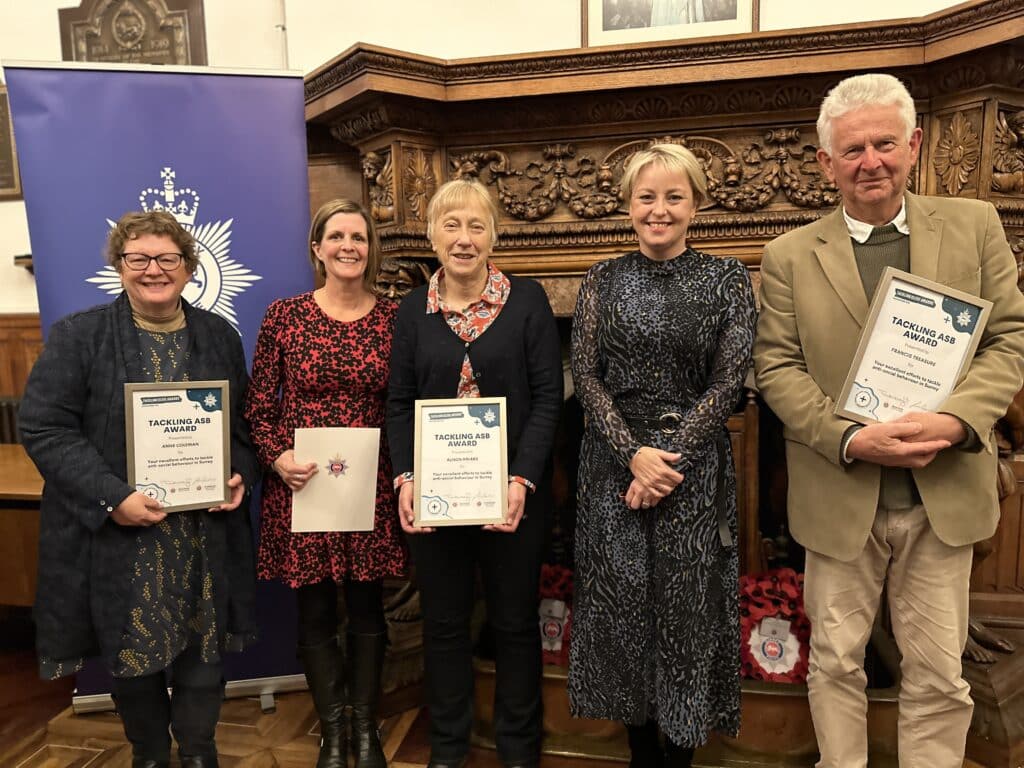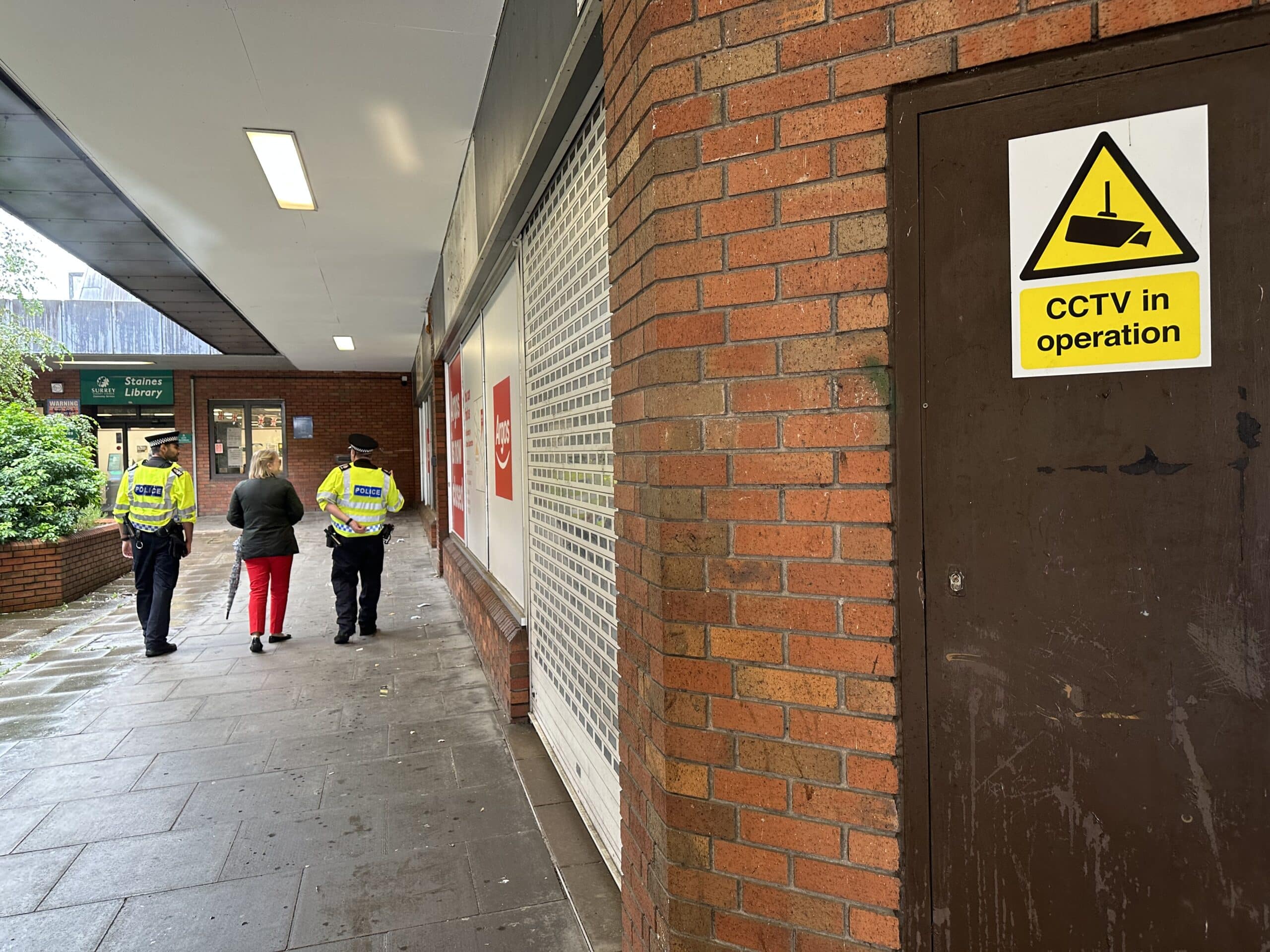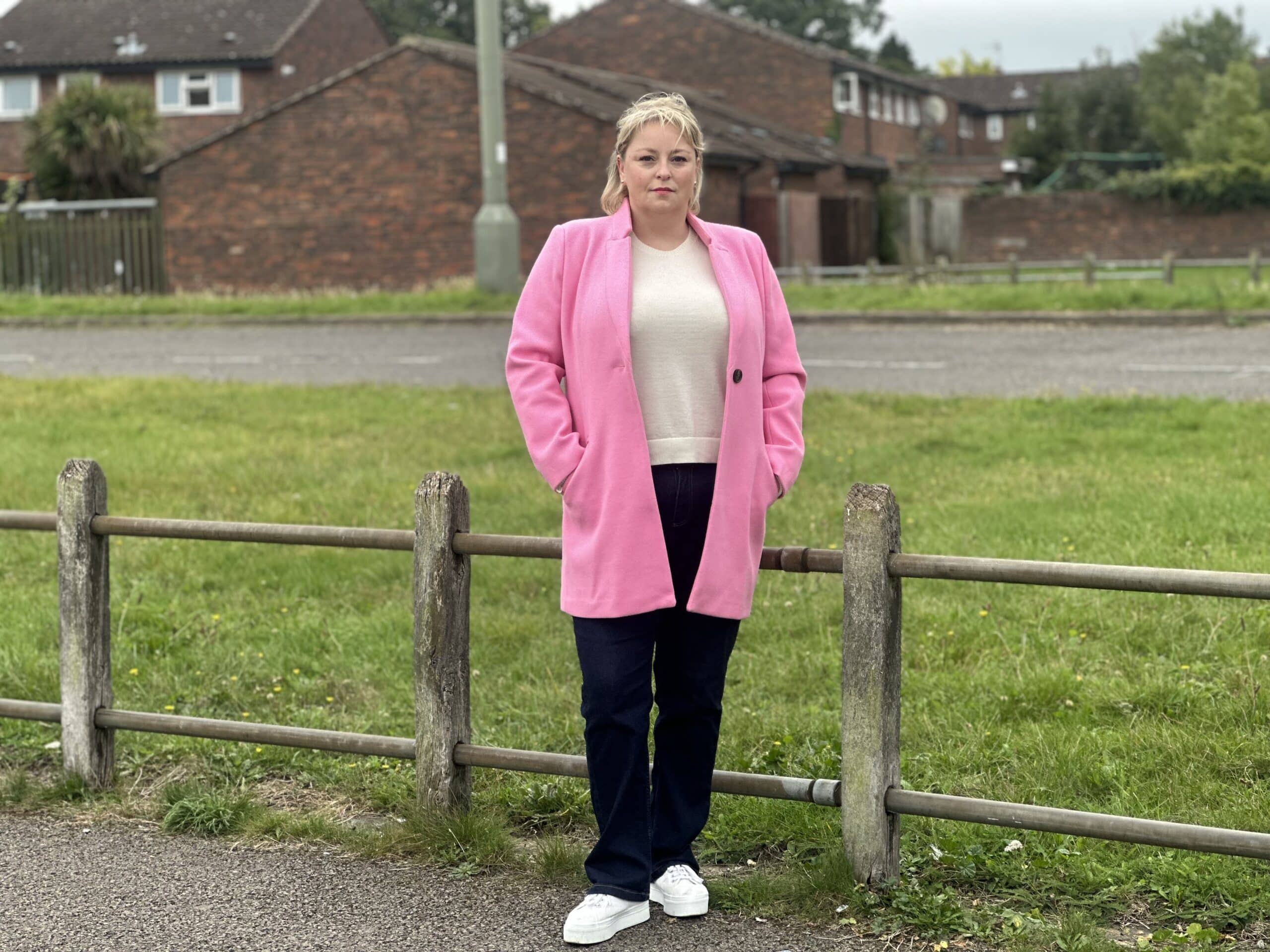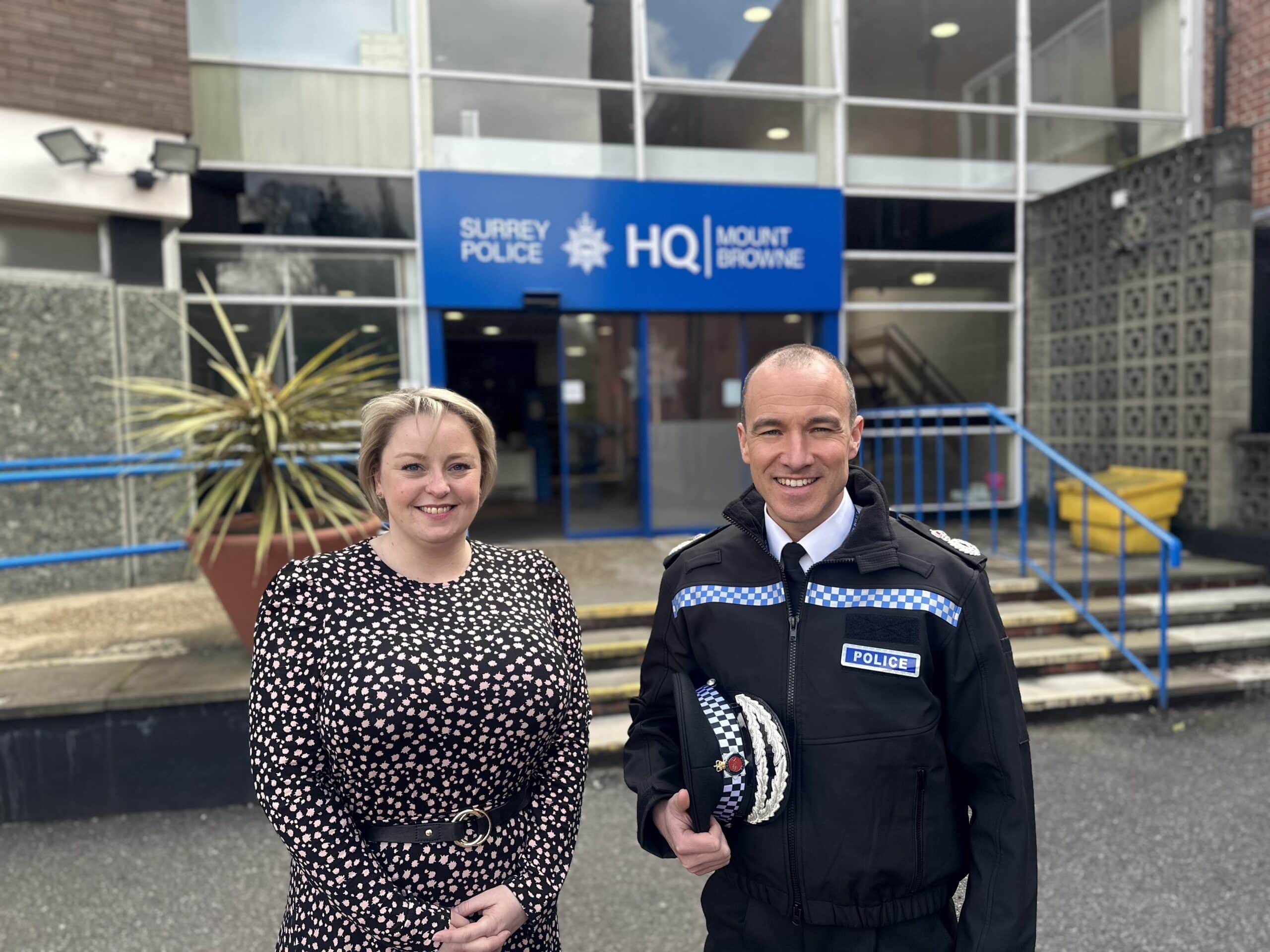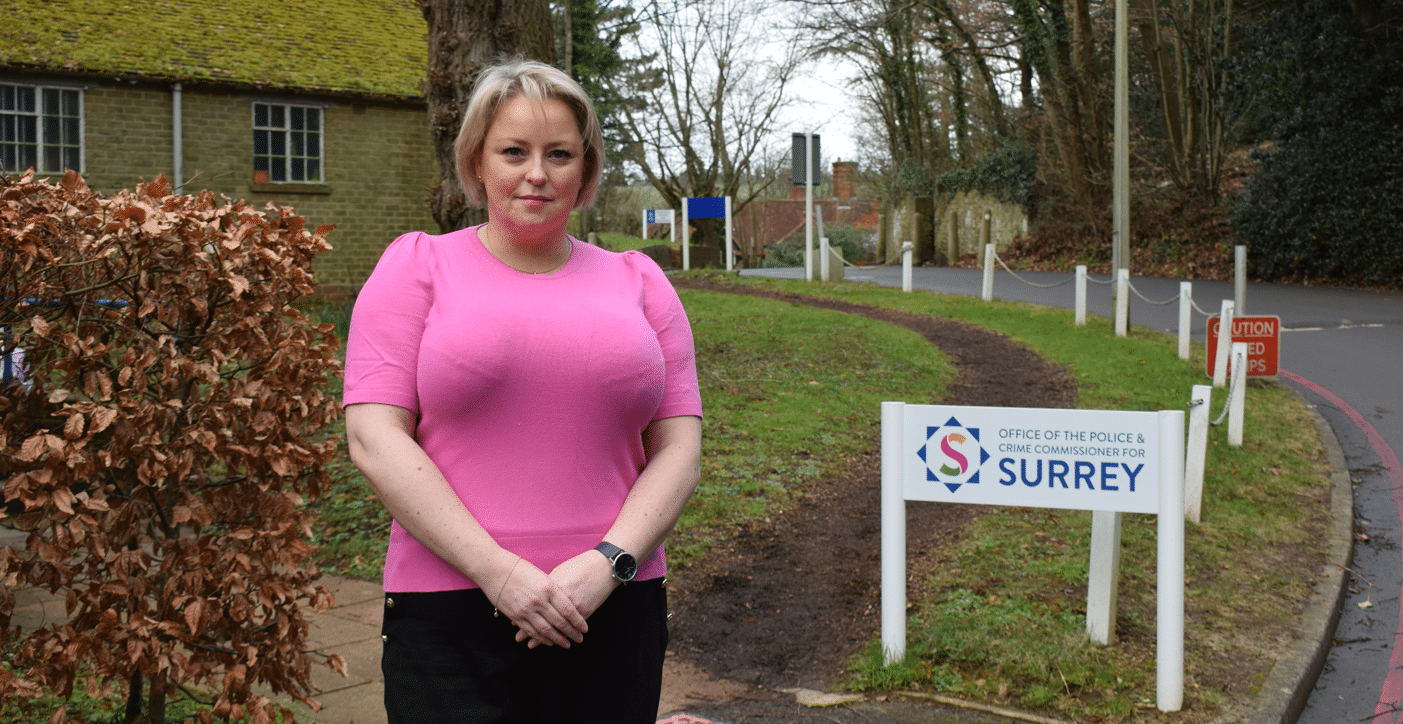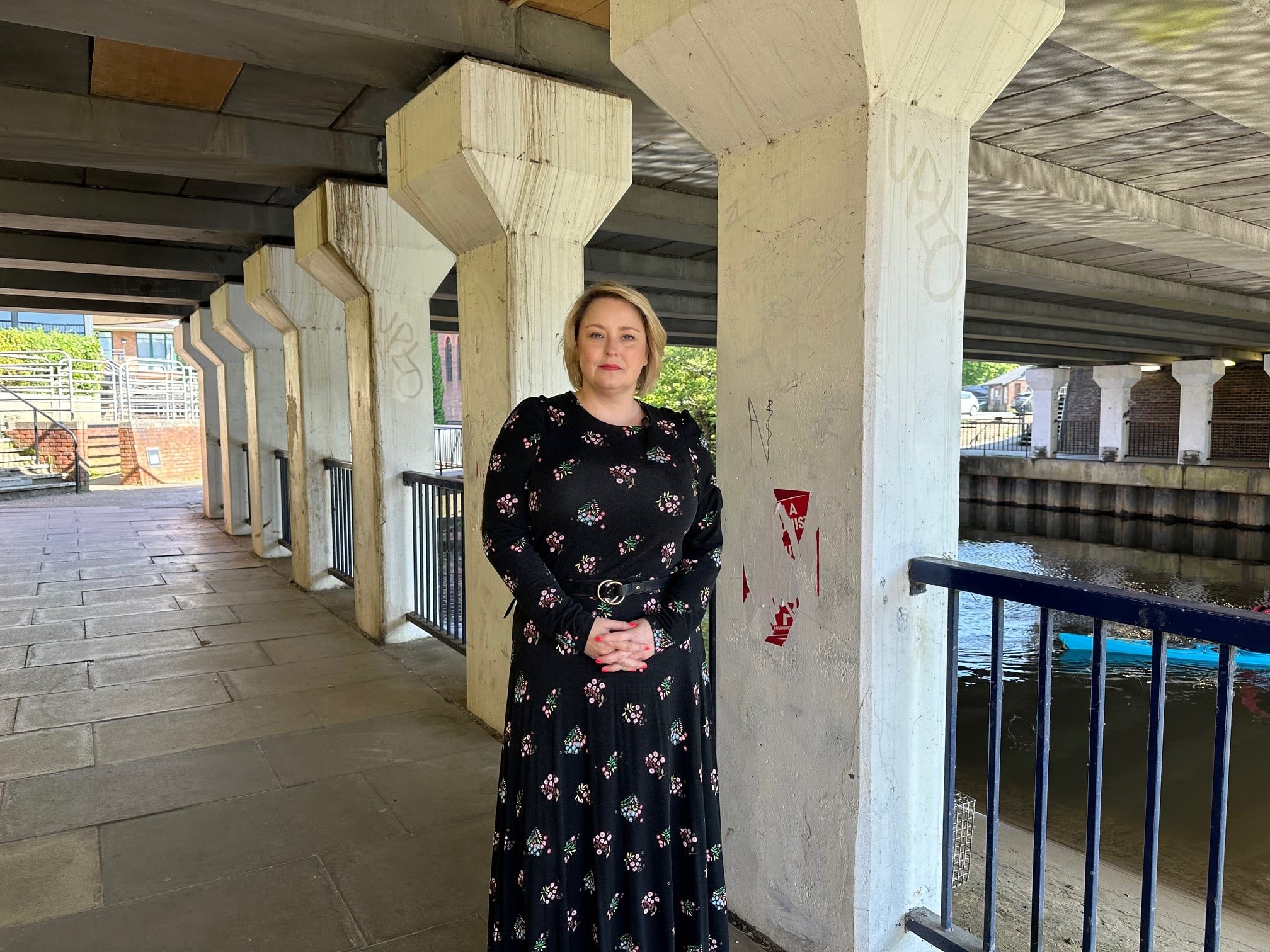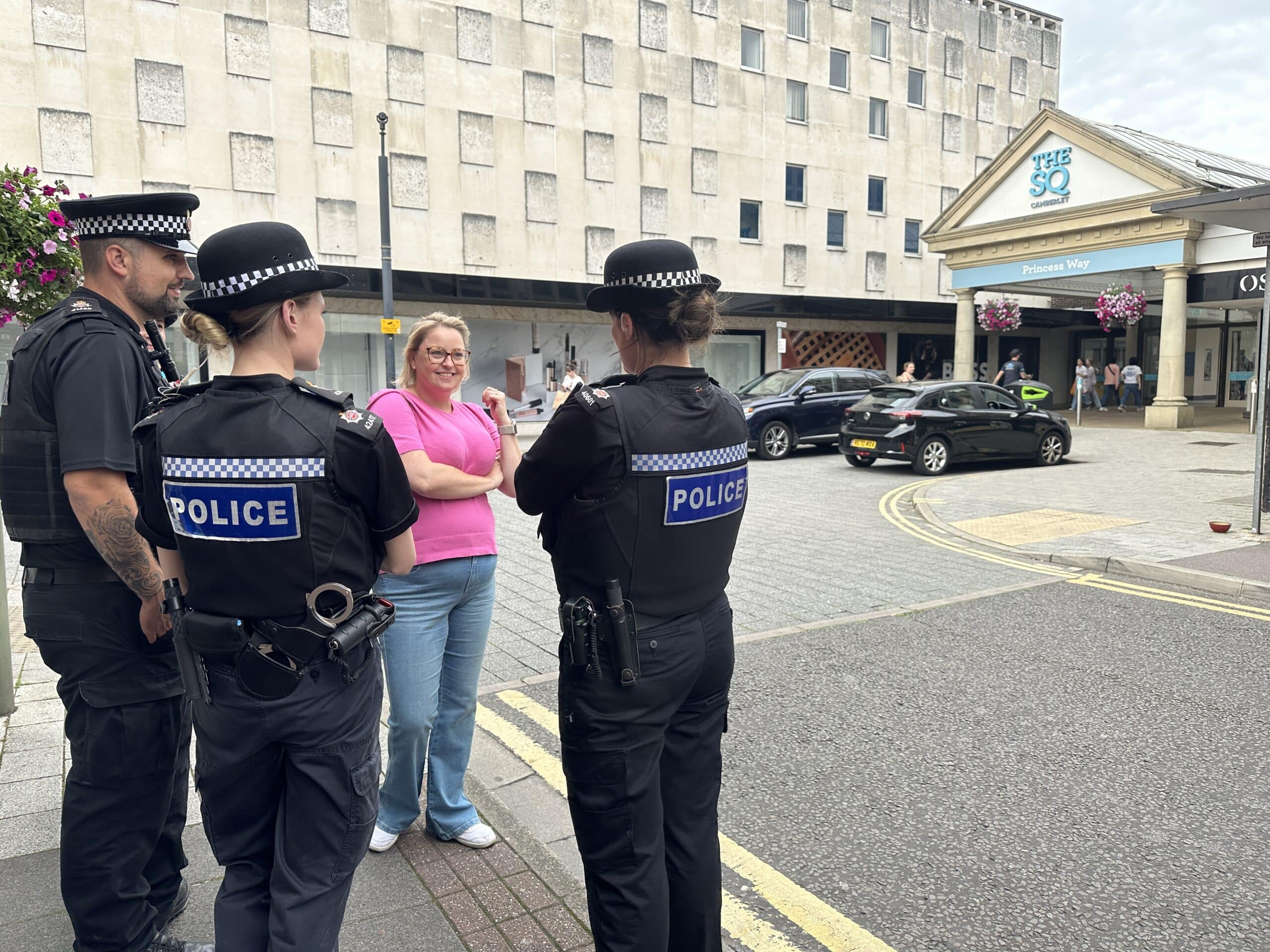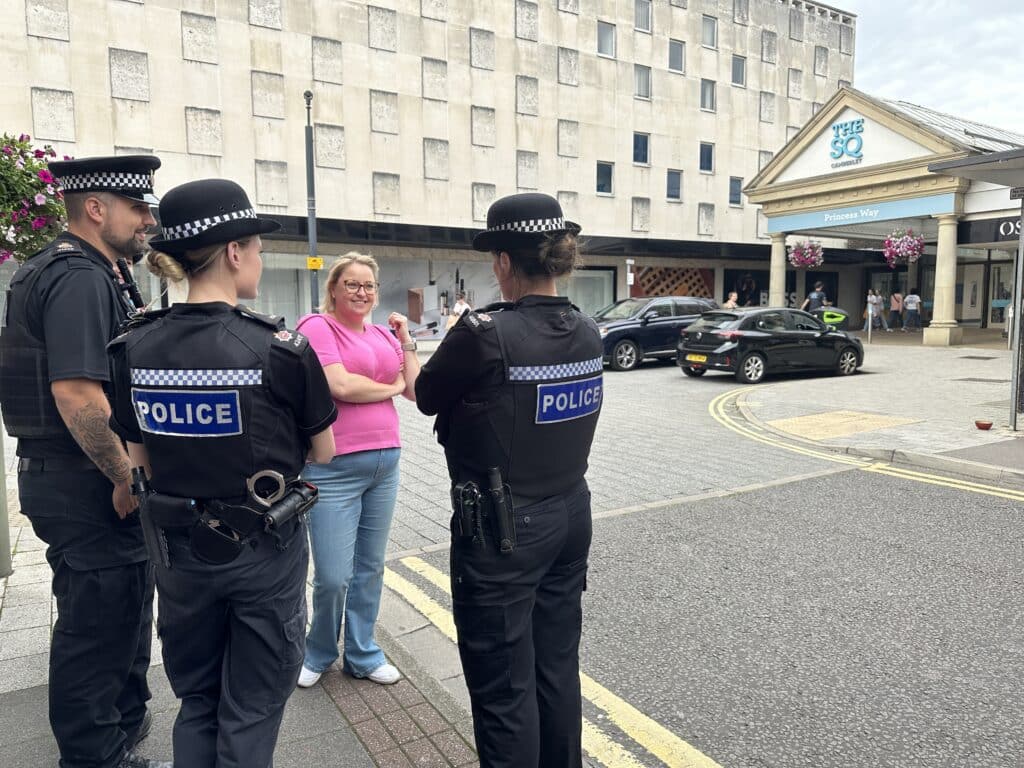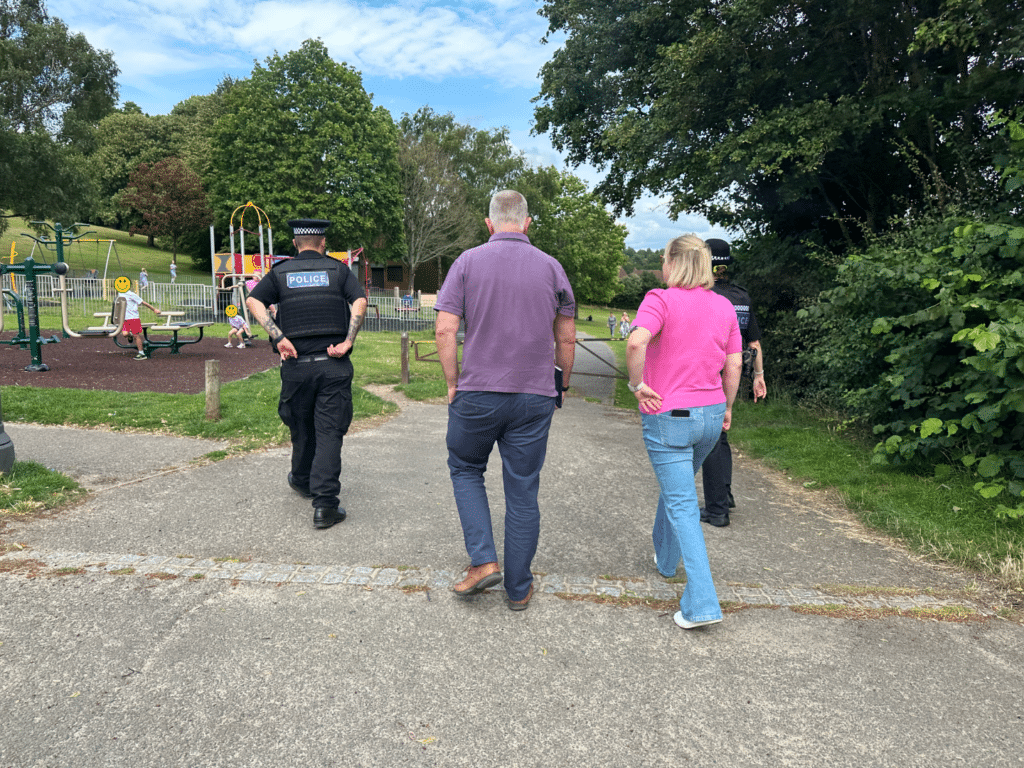It’s the last chance to have your say on what you think the policing priorities in your community should be.
Surrey’s Police and Crime Commissioner Lisa Townsend is urging residents to fill in a brief survey that will help shape policing in the county for the next three years.
The poll, which allows respondents to pick the issues they’d like to see Surrey Police focus on, closes this Thursday, December 12.
It is anonymous, takes just a few minutes to complete, and can be filled in here:
Surrey Police and Crime Plan 2025-2028
Just days remain to have your say
The answers will help the Commissioner draw up her Police and Crime Plan, which provides the blueprint for policing in Surrey until 2028.
It will be published in early 2025 and will cover her current term of office.
Lisa was re-elected for a second term of office in May this year and has pledged to ensure Surrey Police implement a ‘back-to-basics’ approach to policing in the county.
She said: “Time is running out for Surrey’s residents to put their voices at the heart of policing.
‘Get offenders off our streets’
“My survey will close on Thursday, and I’d urge anyone who hasn’t yet had their say to fill it in.
“I want Surrey Police to focus on tackling those crimes that blight our local communities and to target persistent offenders and take them off our streets.
“But it’s really important that I hear from as many people as possible about what is happening where you live and what you want to see your police teams focus on in the future.
“The Force is making great strides, with an additional 3,500 charges across all crime types in the past 12 months. We must sustain that fantastic progress, but there are challenges ahead and tough choices will have to be made on where we focus resources.
“That’s why I want to concentrate on what Surrey residents say is most important to them.”
Join local events
For more information on the Police and Crime Plan, visit Surrey-PCC.gov.uk/police-and-crime-plan/consultation-2024
The Commissioner and Chief Constable Tim De Meyer are currently touring the county for the Policing Your Community roadshow.
The final in-person event takes place this Wednesday, December 11 at Haslemere Museum in Waverley borough. An online event for those who were unable to join their nearest meeting will then be hosted on January 13 next year.
For more information, or to sign up, visit Surrey.Police.uk/police-forces/surrey-police/areas/au/about-us/in-the-community/
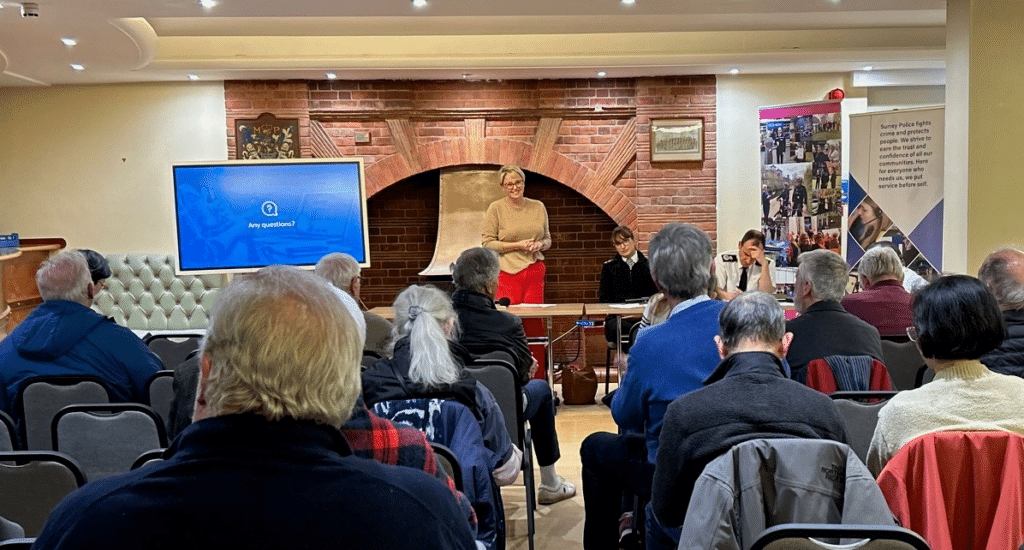
Lisa Townsend speaks to an audience at the Policing Your Community event in Elmbridge this autumn
